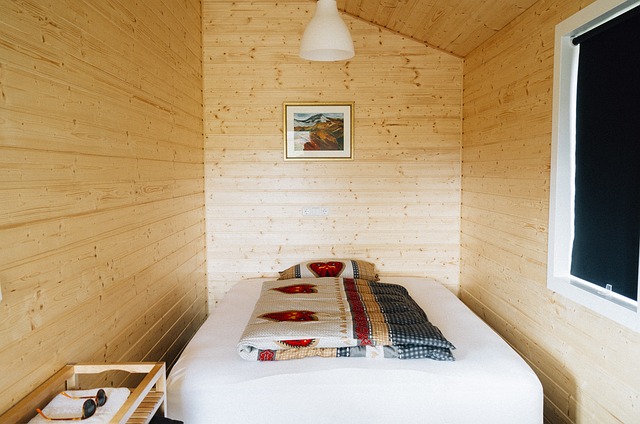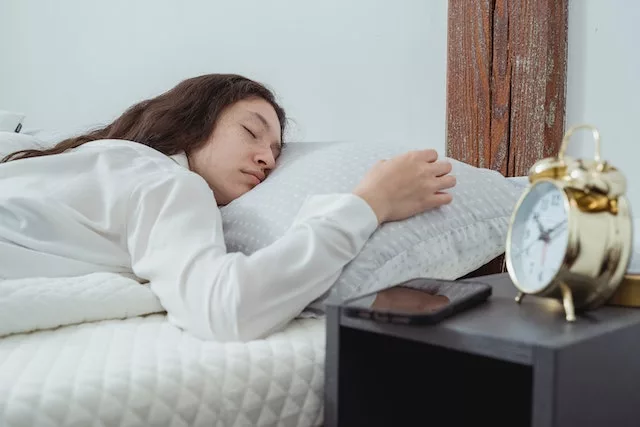Getting a good night’s sleep is essential for our overall well-being and productivity. While various factors contribute to a restful sleep, the temperature of your bedroom plays a crucial role. In this article, we will explore the significance of temperature for quality sleep and provide insights into finding the optimal temperature that promotes a restful slumber.
The Sleep-Temperature Connection
The body’s internal temperature naturally fluctuates throughout the day, following a circadian rhythm. As evening approaches, our core body temperature begins to decrease, signaling the body to prepare for sleep. Maintaining an environment that supports this natural cooling process can significantly improve the quality of our sleep.
Recommended Temperature Range
The National Sleep Foundation suggests that the optimal temperature for a good night’s sleep is between 60 to 67 degrees Fahrenheit (15 to 19 degrees Celsius). This range allows for a cool and comfortable sleep environment that promotes relaxation and helps regulate the body’s temperature.
Personal Preference Matters! While the recommended temperature range serves as a general guideline, individual preferences may vary. Some people might find temperatures slightly higher or lower within the range more comfortable for their sleep. Experiment with different temperatures within the suggested range to find what works best for you.
Tips for Achieving the Ideal Sleep Temperature
- Adjust Bedding and Clothing: Use breathable, lightweight bedding materials, such as cotton or bamboo, that allow proper airflow and help regulate body temperature. Opt for layers to adjust accordingly if you feel too hot or cold during the night. Choose sleepwear that is comfortable and suitable for the temperature of your bedroom.
- Control Room Ventilation: Ensure proper airflow in your bedroom to maintain a cool temperature. Open windows or use fans to circulate fresh air if it is not too hot or noisy outside. If the external environment is not favorable, consider using a fan or air conditioning unit to achieve the desired temperature.
- Use Smart Thermostats or Temperature-Regulating Devices: Smart thermostats are designed to maintain a specific temperature in your bedroom throughout the night. These devices can be programmed to adjust the temperature based on your sleep schedule, ensuring optimal comfort. Additionally, there are innovative sleep products available, such as cooling mattress toppers or pillows, which can help regulate body temperature and improve sleep quality.
- Consider Your Partner’s Preferences: If you share a bed, take into account your partner’s temperature preferences as well. Open communication and compromise can help find a temperature that suits both individuals for a comfortable and uninterrupted sleep.
Additional Factors Influencing Sleep Quality
While temperature is important, it’s essential to remember that other factors can impact sleep quality:
- Light Exposure: Minimize exposure to bright lights and electronic devices before bed, as they can disrupt the body’s natural sleep-wake cycle.
- Noise Levels: Create a quiet sleeping environment by reducing external noise using earplugs, white noise machines, or soundproofing measures.
- Bedtime Routine: Establish a consistent bedtime routine that includes relaxation techniques like reading, meditating, or taking a warm bath. A predictable routine signals the body to prepare for sleep.
Conclusion
Finding the optimal temperature for a good night’s sleep is a vital component of a restful slumber. Aim for a bedroom temperature between 60 to 67 degrees Fahrenheit (15 to 19 degrees Celsius) and make adjustments according to your personal comfort. Experiment with bedding, clothing, ventilation, and temperature-regulating devices to create a sleep environment that supports your body’s natural cooling process. By prioritizing the right sleep temperature and considering other factors that affect sleep quality, you can enhance your overall sleep experience and wake up feeling refreshed and rejuvenated.
Image by Daniela Dimitrova from Pixabay
Sleep
-

How to Snack at Night to Sleep Well?
Snacking is a common part of modern eating habits, often providing a source of comfort and satisfaction. However, the timing and content of these snacks can have significant effects on various aspects of health, including sleep. In this article, we will explore the relationship between late-night snacking and sleep, highlighting the potential impacts on sleep…
-

What is a Sleep Log and why you need one: Unlocking the Secrets to Better Rest and Overall Health
-

Exploring the Relationship Between Intermittent Fasting and Sleep Quality
-

The Role of Hormones in Sleep and Natural Ways to Improve Hormone Health for Better Sleep
-

The Powerful Diet and Sleep Connection: Understanding the Impact
-

How to master the Art of Power Naps: A Guide to Healthy and Effective Power Naps
-

7 Essential Oils in Aromatherapy to Promote Sleep









Leave a Reply